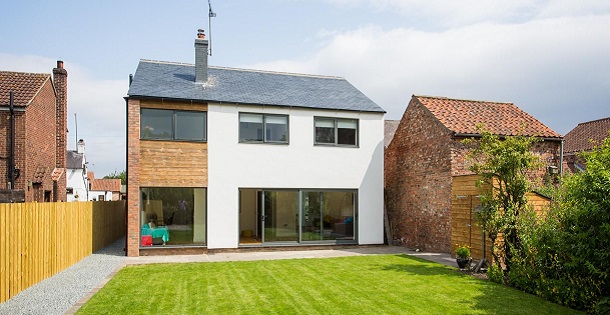
When you are in negative equity with your property, it can cause some issues if you want to move to a new house or remortgage. Being in negative equity is a difficult situation that is often difficult to fully understand. If you are in negative equity, you should make sure you understand all your options in order to choose the best one for you and your property.
This guide covers everything you need to know about negative equity, including what it is, how it can happen and what you can do about it.
What is negative equity?
If you end up in a situation where your property is worth less than the mortgage secured on it, then this is known as negative equity, falls in property prices usually cause it, and it can cause some issues if you want to sell your home.
Every time house prices slump, it causes a lot of homeowners to fall into negative equity and have to deal with having a mortgage greater than the value of their home. For example, if you buy a house for £200,000 using a mortgage of £170,000, but the house is now worth £150,000 you would be in negative equity because the value is less than the mortgage.
It is possible not to be aware that you are in negative equity if you do not know how much you still owe on your mortgage or don’t know the current value of your property. If you want to check if you are in negative equity, you can contact your mortgage lender and find out how much you owe, and then contact local estate agents to value your home.
Being in negative equity doesn’t cause too many issues if you are happy in your home, can afford to keep up the mortgage repayments and are in a good position to wait until property prices increase again. However, if you do need to move house for any reason and you are in negative equity it can make the whole process much more complicated.
Your type of mortgage can have an impact on your likeliness to have negative equity. If you have an interest-only mortgage, then your monthly payments will not be going towards reducing your debt, but only towards the interest on your debt.
What to do about negative equity?
Knowing how to deal with negative equity can be overwhelming, and there are a few options available to you.
1. Reduce your mortgage with savings
If your mortgage is higher than the value of your home, then you can reduce your mortgage using any savings you have and get out of negative equity. Before using your savings towards your mortgage, check if your mortgage provider will charge you for paying off a lump sum.
You should also work out what interest you would be earning on your savings to decide if it makes financial sense to use it to pay off some of your mortgage.
2. Wait it out
If you are in a position where you can wait out the negative equity and stay in your property until the value increases again or your mortgage is reduced, then this is usually the easiest and cheapest option, as long as you can afford your mortgage payments and don’t need to relocate or move to a new property.
3. Increase your property value
If you really need to sell your home and the amount you are likely to get for your property is just less than the amount you need to break even on your mortgage, then there are a few things you can do to increase the property value.
Making small enhancements to your home such as redecorating, doing up the garden or other changes can add value to your home without too much of an upfront investment.
4. Rent your home
When you have negative equity but really need to move, then it could be worth considering renting out your property instead of selling. This way you would continue to own the property and pay off the mortgage but will receive rental income which could give you the freedom to rent somewhere else until the property is out of negative equity.
You should think carefully about whether you can realistically afford to rent and pay your mortgage, and this will all depend on how much rental income you could get from your home.
If you still really need to sell your property, it can be worth discussing all your options with your mortgage lender. They may be willing to accept however much you can sell the home for a settlement on the mortgage if it is more than they could have received for repossessing the property.



